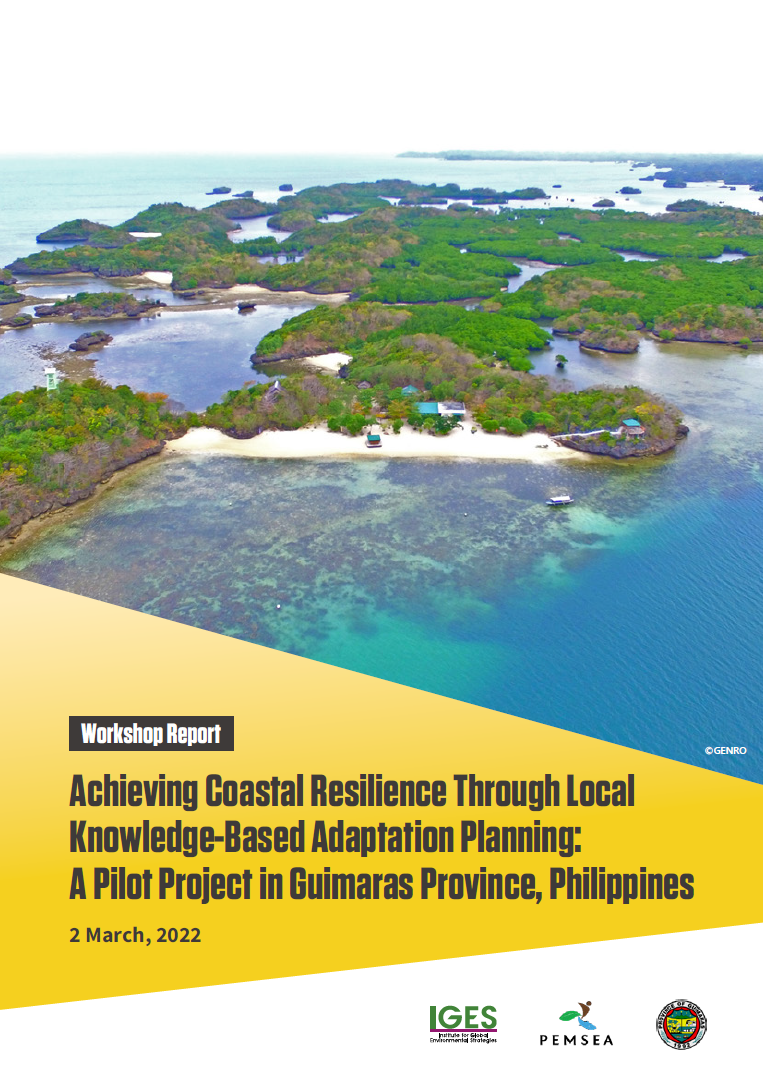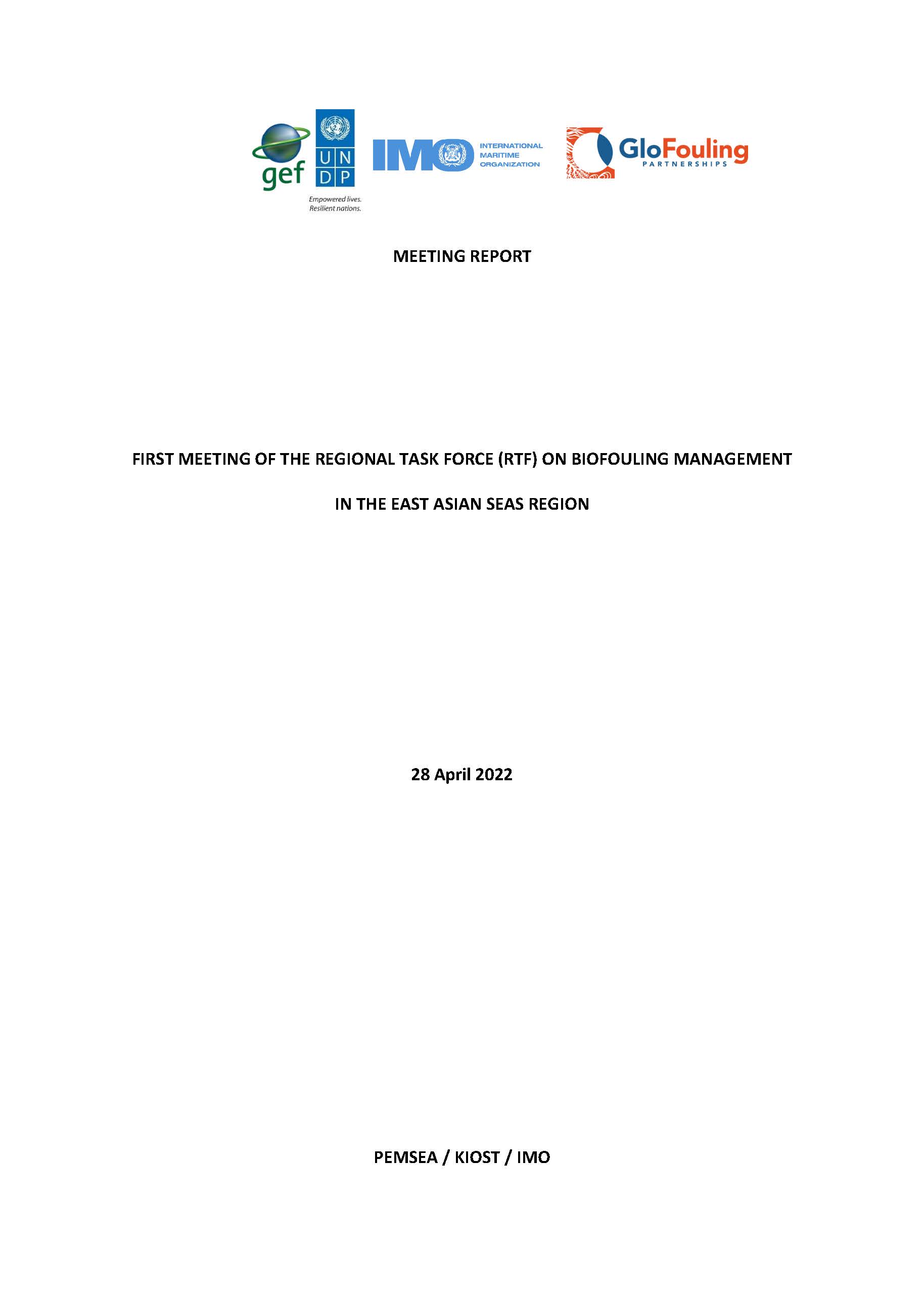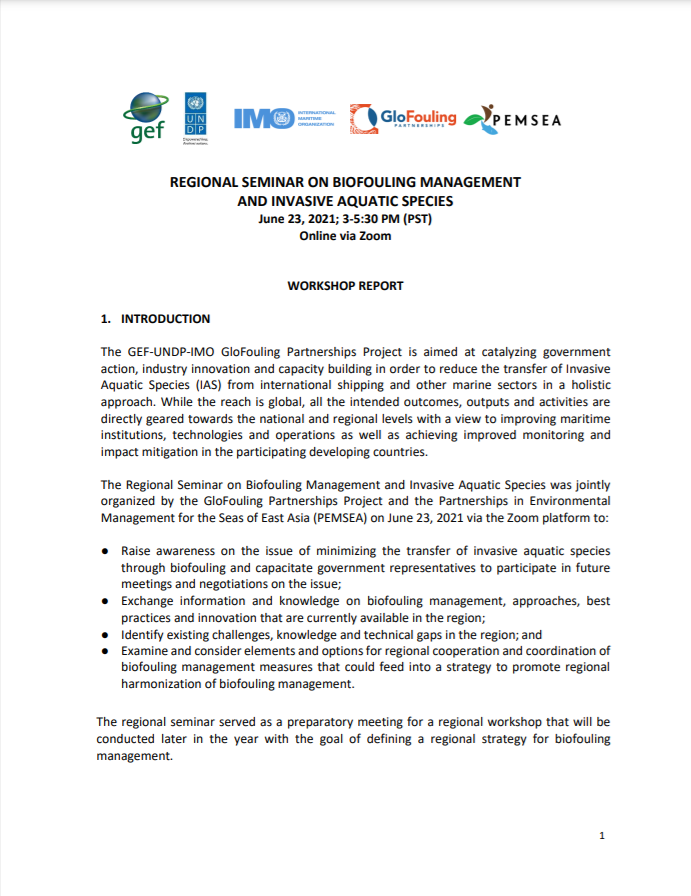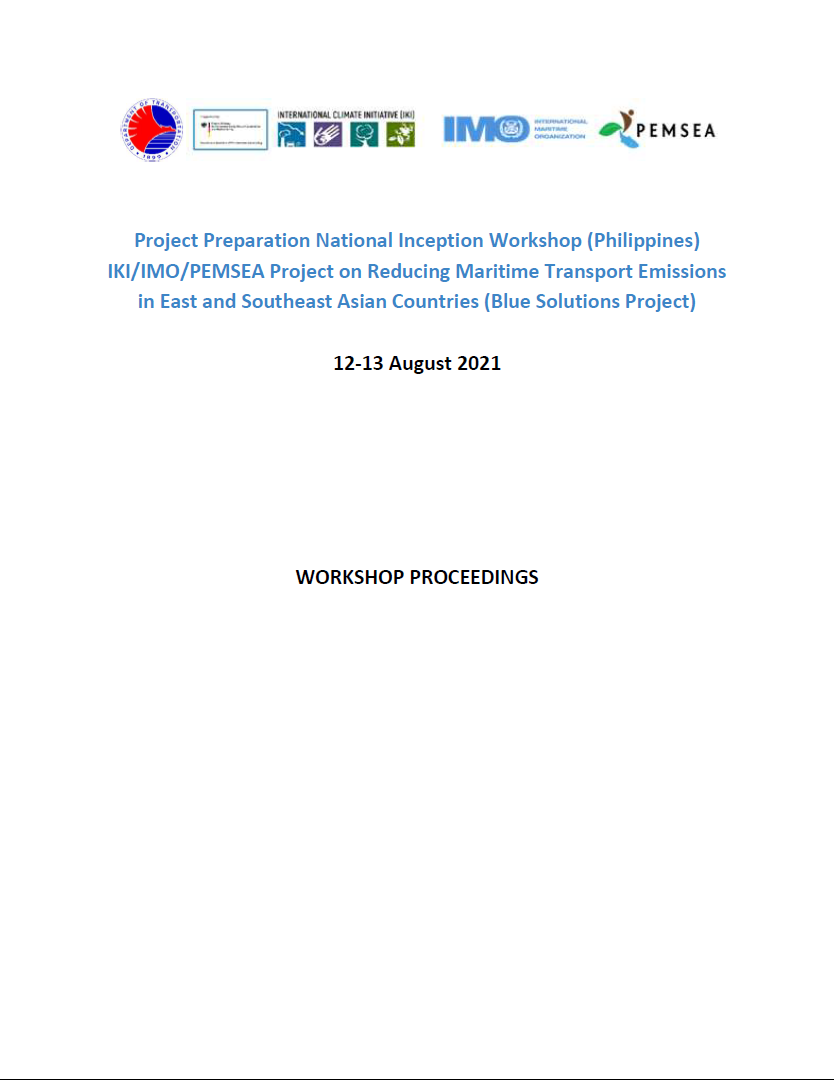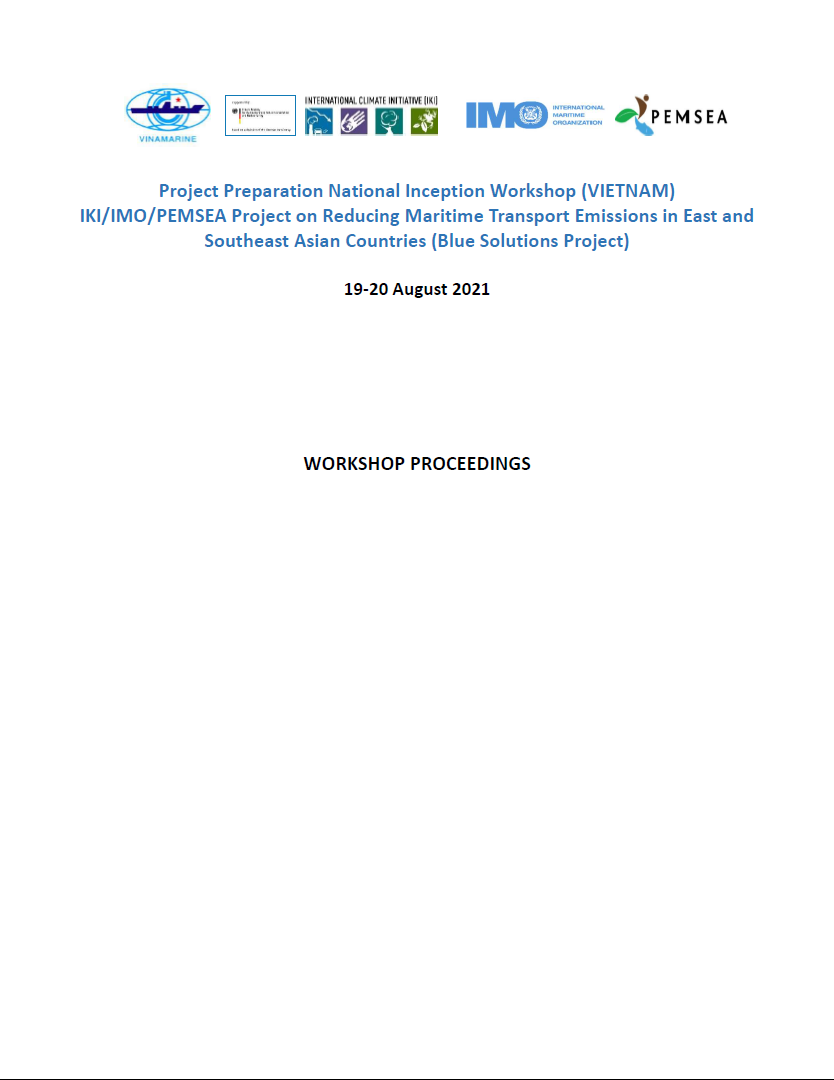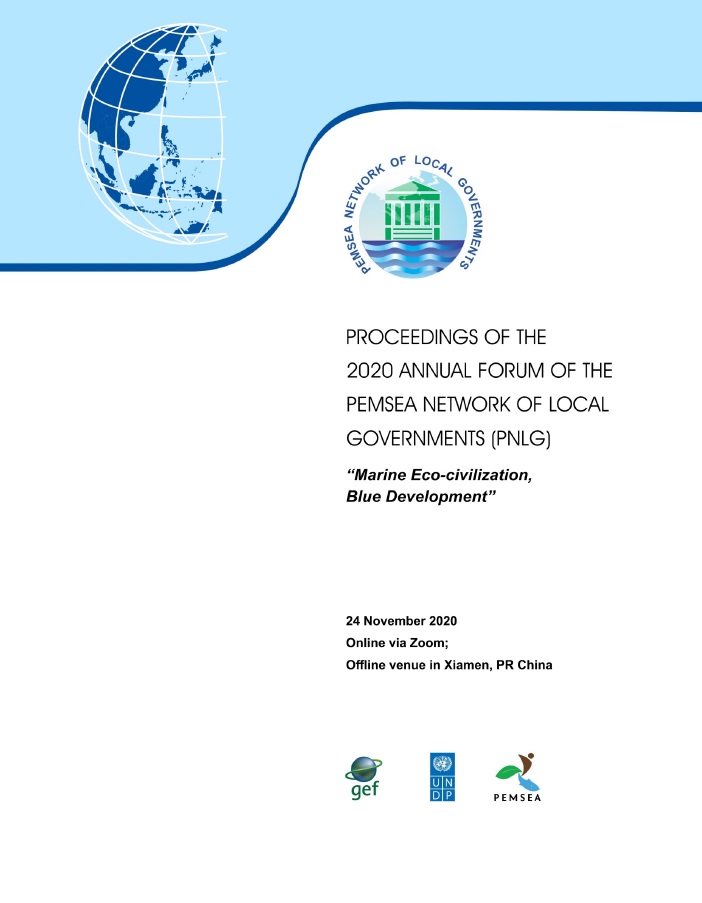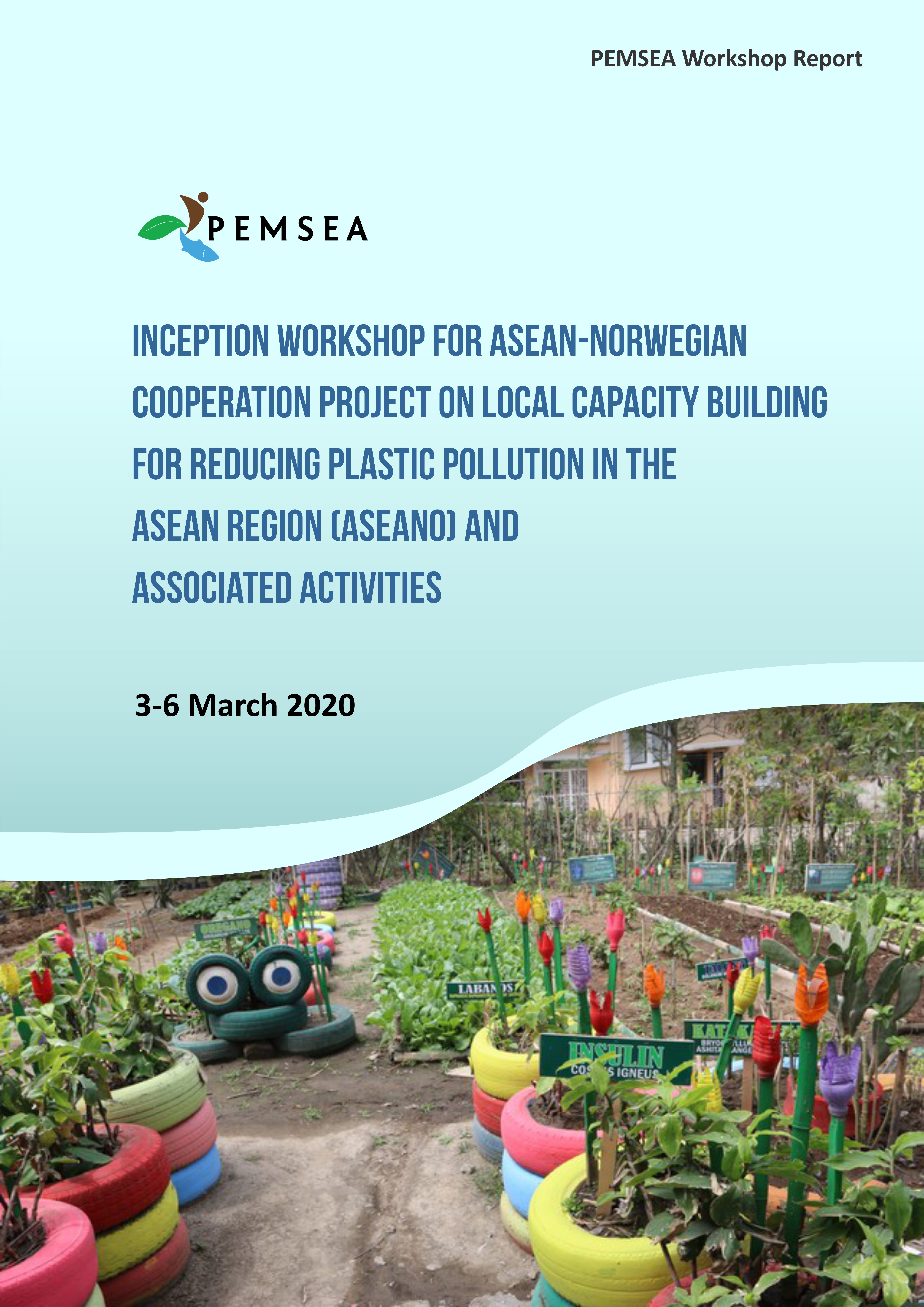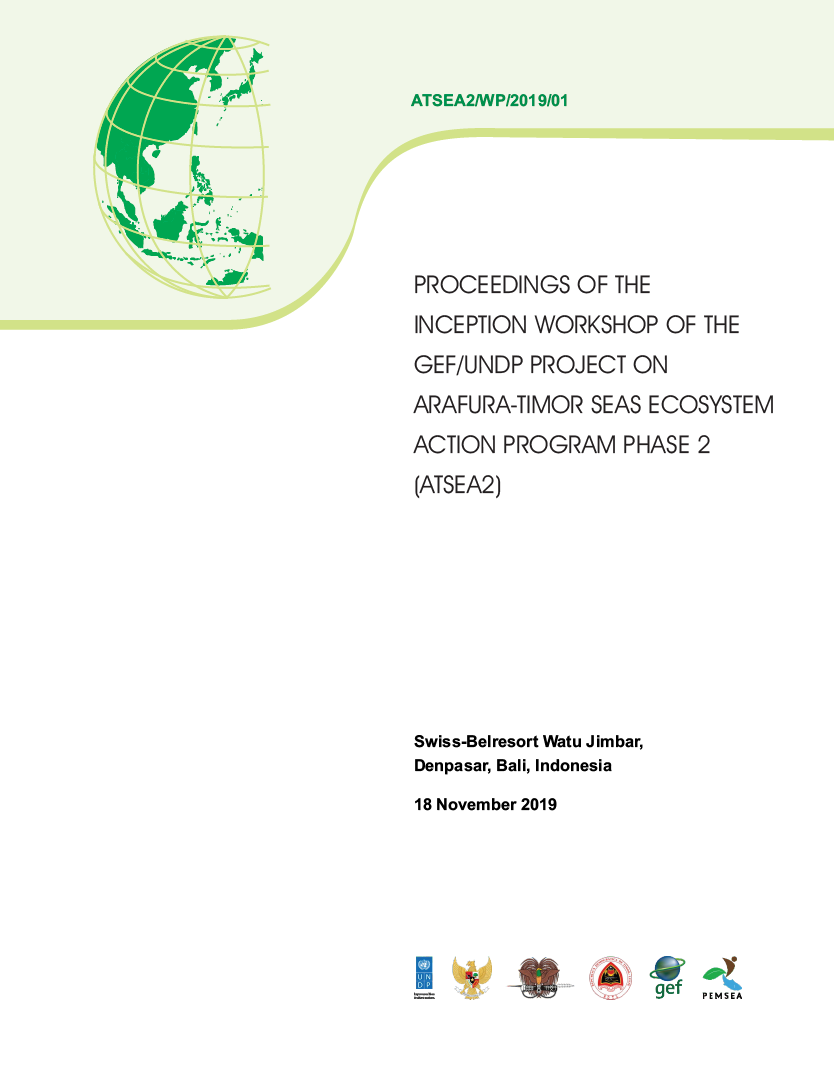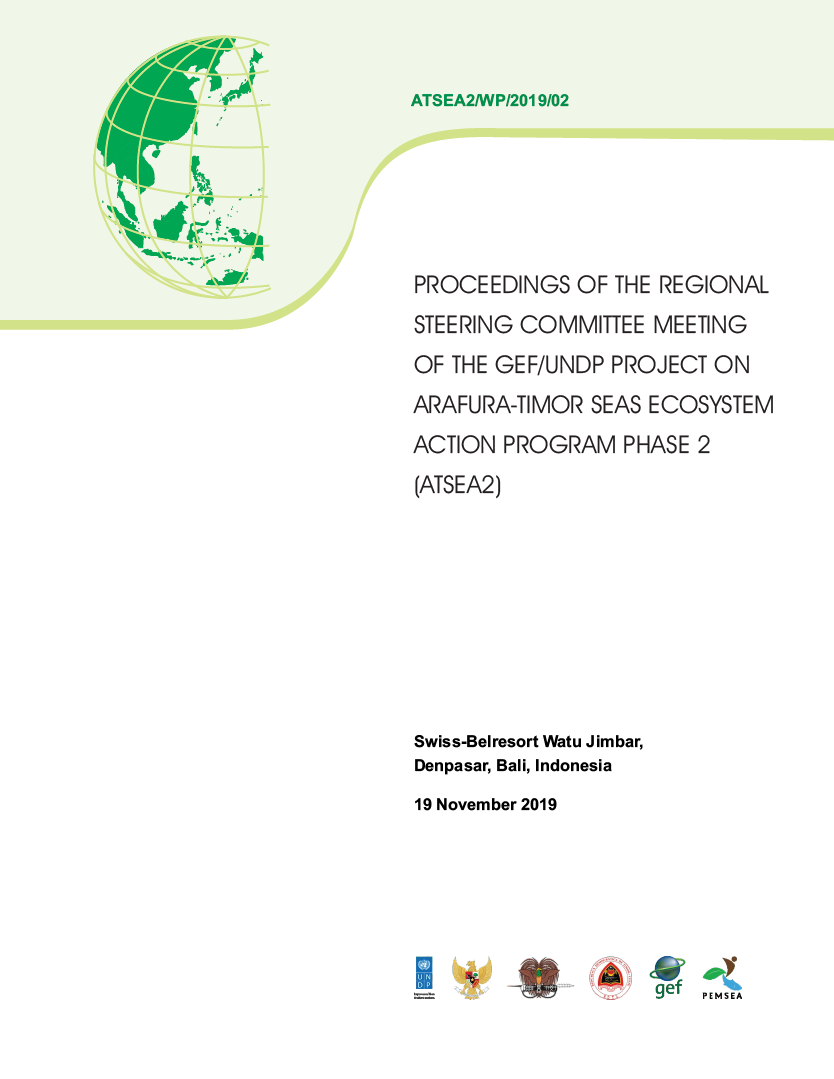
Breadcrumb
Workshop Report: Achieving Coastal Resilience Through Local Knowledge-Based Adaptation Planning: A Pilot Project in Guimaras Province, Philippines
Coastal communities are disproportionately affected by the impacts of climate change on the ocean, including depleted marine ecosystems, sea-level rise, and coastal hazards such as storm surges. These climate change-related impacts have been experienced by Guimaras, a small island province located in Western Visayas, Philippines. IGES and PEMSEA Resource Facility (PRF) launched a pilot project that aims to facilitate the formulation and implementation of appropriate and timely Climate Change Adaptation (CCA) and Disaster Risk Reduction (DRR) measures, in coordination with Guimaras Local Government Units. This project is funded by Adaptation Research Alliance (ARA) microgrant programmes with the purpose of accelerating coproduction of adaptation knowledge around the globe.
This project was expected to produce local adaptation knowledge that helps local communities deepen their understanding of future climate change and design transformative adaptation strategies, which is defined as “changing the fundamental attributes of a socialecological system in anticipation of climate change and its impacts” (Matthews et al., 2018). To this end, we organised a stakeholder workshop where the following questions were considered: what type of adaptation responses are the most effective? Which locations are priorities for implementation? And which timescales should be considered when planning for their implementation? (Magnan et al., 2020). This exercise is designed to inform local policy planning in response to climate change in the future.
As a tangible outcome of the workshop, we intended to co-produce a “local adaptation pathway” which has been considered an effective approach for facilitating transformative adaptation that deals with uncertainty over long-term climate change (Wise et al., 2013; Ranger et al., 2013; Buurman and Babovic, 2016). Previously, Barnett et al. (2014) revealed that a local adaptation pathway is feasible at the local scale, offering a low-risk and low-cost way to begin the long-term process of adaptation to sea-level rise. We applied the pathway approach to the coastal areas of Guimaras, with special attention to integration of scientific knowledge with local knowledge. Our interests also included how Guimaras’ past experience with Integrated Coastal Management (ICM) functions in the pathway development processes because the ICM also sheds light on the integration and co-production of knowledge among different stakeholders at the local scale.
First Meeting of the Regional Task Force (RTF) on Biofouling Management in the East Asian Seas Region
PEMSEA supports IMO on biofouling management through establishing the Regional Strategy on Biofouling Management in the EAS Region and forming the RTF which will drive the biofouling management in the region.
The proposed objectives of the 1st RTF meeting were to:
- Agree on the draft Terms of Reference (TOR) of the RTF;
- Elect the Chairperson of the RTF;
- Review the draft zero-version of the Regional Strategy on Biofouling Management in the EAS Region; and
- Take up other matters arising to the meeting
It is noted that the countries of the “East Asian Seas (EAS) Region” in this document covers the participating countries of ASEAN and PEMSEA including Brunei Darussalam, Cambodia, China, DPR Korea, Indonesia, Japan, Lao PDR, Malaysia, Philippines, RO Korea, Singapore, Thailand, Timor-Leste and Vietnam.
Proceedings of the Regional Seminar on Biofouling Management and Invasive Aquatic Species
The GEF-UNDP-IMO GloFouling Partnerships Project is aimed at catalyzing government action, industry innovation and capacity building in order to reduce the transfer of Invasive Aquatic Species (IAS) from international shipping and other marine sectors in a holistic approach. While the reach is global, all the intended outcomes, outputs and activities are directly geared towards the national and regional levels with a view to improving maritime institutions, technologies and operations as well as achieving improved monitoring and impact mitigation in the participating developing countries. The Regional Seminar on Biofouling Management and Invasive Aquatic Species was jointly organized by the GloFouling Partnerships Project and the Partnerships in Environmental Management for the Seas of East Asia (PEMSEA) on June 23, 2021 via the Zoom platform to:
- Raise awareness on the issue of minimizing the transfer of invasive aquatic species through biofouling and capacitate government representatives to participate in future meetings and negotiations on the issue;
- Exchange information and knowledge on biofouling management, approaches, best practices and innovation that are currently available in the region;
- Identify existing challenges, knowledge and technical gaps in the region; and
- Examine and consider elements and options for regional cooperation and coordination of biofouling management measures that could feed into a strategy to promote regional harmonization of biofouling management.
The regional seminar served as a preparatory meeting for a regional workshop that will be conducted later in the year with the goal of defining a regional strategy for biofouling management.
Proceedings of the Blue Solutions Philippines National Inception Workshop
This event is part of a series of national inception workshops being held with participating countries of the International Climate Initiative/ International Maritime Organization/Partnerships in Environmental Management for the Seas of East Asia (IKI/IMO/PEMSEA) Project on Reducing Maritime Transport Emissions in East and Southeast Countries (Blue Solutions Project). This is a follow-on to the regional kick-off meeting for the preparation phase of the overall project held on 18 June 2021. These national inception workshops will initiate the country-specific discussions on the preparation of the full proposal for a pilot project within each country.
The national inception workshop for the Philippines was held virtually from 12-13 August 2021. It was jointly organized by the Department of Transportation (DoTr), which serves as the National Focal Agency for the Project, the IMO, and PEMSEA.
The aims of this workshop were to:
- Introduce the scope, objectives, and components of the Blue Solutions project, including the timeline and implementing arrangements for the national project preparation;
- Understand the principal targets and challenges to greenhouse gas (GHG) reduction in the maritime sector in the Philippines;
- Discuss the identification of a national GHG reduction pilot demonstration project in the Philippines; and
- Delve into the national assessment of GHG emissions in the maritime sector in the Philippines.
Proceedings of the Blue Solutions Viet Nam National Inception Workshop
The national inception workshops in participating countries including Vietnam are follow-on activities to the regional kick-off meeting for the preparation phase of the International Climate Initiative/ International Maritime Organization/Partnerships in Environmental Management for the Seas of East Asia (IKI/IMO/PEMSEA) Project on Reducing Maritime Transport Emissions in East and Southeast Countries (Blue Solutions Project) that was conducted on June 18, 2021 to initiate the country-specific discussions on the preparation of the full proposal for the aforementioned project.
The national inception workshop for Vietnam was held virtually on August 19 and 20, 2021 and jointly organized by the Vietnam Maritime Administration (VINAMARINE), which serves as the National Focal Agency for the Project, the IMO and PEMSEA.
The 1.5-day national inception workshop was organized to:
- Introduce the scope, objectives and components, including timeline and implementing arrangements for the national project preparation;
- Understand the principal targets and challenges to greenhouse gas (GHG) reduction in the maritime sector in Vietnam;
- Discuss the identification of a national GHG reduction pilot demonstration project in Vietnam; and
- Delve into the national assessment of GHG emissions in the maritime sector in Vietnam.
Proceedings of the 2020 Annual Forum of the PEMSEA Network of Local Governments (PNLG)
The 2020 Forum of the PNLG with the theme, “Marine Eco‐civilization, Blue Development” was hosted by the Xiamen Municipal Government and co‐organized by the PNLG Secretariat, the PEMSEA Resource Facility (PRF), the Fujian Institute for Sustainable Oceans (FISO) and Coastal and Ocean Management Institute (COMI) of Xiamen University (XMU). The forum was conducted on 24 November 2020 via a blended online and face‐to‐face meeting for the local attendees in Xiamen.
Over one hundred thirty participants from: a) 35 PNLG member local governments from eight countries, namely Cambodia, China, Indonesia, Japan, Malaysia, Philippines, Timor Leste, and Viet Nam; b) from PNLG Associate members, namely the First Institute of Oceanography and COMI; c) resource speakers and other invited experts, d) the PNLG Secretariat and e) the PRF attended the forum. A representative from Busan, Republic ok Korea also attended the forum as observer.
Inception workshop for ASEAN-Norwegian cooperation project on local capacity building for reducing plastic pollution in the ASEAN region (ASEANO) and associated activities
Representatives from PEMSEA, NIVA, and CSEAS undertook a trip to Cavite, Philippines, facilitated by Cavite PG-ENRO, to study the proposed pilot site for the Philippine sub-component of the ASEANO project, to meet relevant stakeholders, and to launch the sub-component through an inception workshop with relevant stakeholders from the city of Dasmariñas and nearby areas.
During two days of site visits, various sites along the river were visited and documented, and local stakeholders including politicians and academe representatives were met. These visits allowed the project team to obtain a better picture of existing waste reduction efforts along the Imus river. For the river, the project team observed an expected increase in pollution levels as the river moved downstream, and observed numerous areas of waste accumulation and points of waste entry into the river. The university stakeholders, Cavite State University and De La Salle University Dasmariñas, expressed great support for the project and are enthusiastic about becoming involved in the research component of the project. Local politicians were also supportive, and referred us to their various material recovery schemes, which across different jurisdictions performed similar material recovery including producing biogas, recycling plastic into new products such as bags and ecobricks, and creating charcoal.
The Inception Workshop held on 5th March brought together stakeholders and interested parties with the dual aims of introducing these parties to the project and providing an opportunity for the project team to ask questions of these individuals. Local inputs and recommendations were sought on a number of different topics, and these inputs will be used to guide the project going forwards.
A project team meeting comprising of core representatives from Cavite, PEMSEA, NIVA and CSEAS, was held to reflect on the learnings of the previous days and chart the way forward for the Philippine sub-component. Existing information will be compiled into a background report on the Imus river, which will be included as a section within the overall ASEANO project’s baseline report. Further smaller meetings and discussions are expected over the coming months, and future in person meetings are expected around the middle of the year.
Proceedings of the ATSEA 2 Inception Meeting
The Inception Workshop of the GEF/UNDP Project on Implementation of Arafura and Timor Seas Regional and National Strategic Programs: Second Phase of the Arafura-Timor Seas Ecosystem Action Program (ATSEA 2) was held at the Swiss-Belresort Watu Jimbar, Denpasar, Bali, Indonesia on 18 November 2019.
The Workshop was attended by representatives from Indonesia, Timor Leste, Papua New Guinea and Australia. Representatives from the United Nations Development Program (UNDP) Country Offices of Indonesia, Timor Leste and Papua New Guinea, and the UNDP Regional Hub Bangkok were also present on behalf of the Global Environment Facility (GEF) and the UNDP. Stakeholder partner organizations from the Coral Triangle Center (CTC), World Wide Fund for Nature (WWF) Indonesia, Indonesian Seas Large Marine Ecosystem (ISLME), and Yayakan Conservasi Alam Nusantara (YKAN) were also represented during the Workshop. The PEMSEA Resource Facility (PRF) served as Secretariat for the Workshop, with local support from UNDP Indonesia.
The publication summarizes the proceedings of the Inception Workshop. Powerpoint presentations delivered during the workshop are herewith accessible.
DOCUMENT NUMBER DOCUMENT TITLE
ATSEA2/DOC/01 Inception Workshop Objectives
ATSEA2/DOC/02 ATSEA1 Background and Lessons Learned
ATSEA2/DOC/03 Project Structure, Overall Goals, Objectives and Outcomes
ATSEA2/DOC/04 Project Strategic Results Framework
ATSEA2/DOC/05 Stakeholder Partnership Forum
ATSEA2/DOC/06 YCAN TNC Presentation
ATSEA2/DOC/07 ISLME Presentation
ATSEA2/DOC/08 CTC Presentation
ATSEA2/DOC/09 ATSEA IW M&E
ATSEA2 Regional Steering Committee Meeting
The Regional Steering Committee Meeting of the GEF/UNDP Project on Implementation of Arafura and Timor Seas Regional and National Strategic Programs: Second Phase of the Arafura-Timor Seas Ecosystem Action Program (ATSEA 2) was held at the Swiss-Belresort Watu Jimbar, Denpasar, Bali, Indonesia on 19 November 2019.
The RSC Meeting was attended by representatives from Indonesia, Timor Leste, Papua New Guinea and Australia. Representatives from the United Nations Development Program (UNDP) Country Offices of Indonesia, Timor Leste and Papua New Guinea, and the UNDP Regional Hub Bangkok were present on behalf of the Global Environment Facility (GEF) and the UNDP. The PEMSEA Resource Facility (PRF) served as Secretariat for the Meeting, with local support from UNDP Indonesia.
The publication summarizes the proceedings of the first RSC Meeting of the ATSEA2 Project. Powerpoint presentations delivered during the meeting are herewith accessible.
DOCUMENT NUMBER DOCUMENT TITLE
ATSEA2RSC/DOC/01 ATSEA2 Inception Workshop Key Takeaways
ATSEA2RSC/DOC/02 Terms of Reference of the RSC and NPB
ATSEA2RSC/DOC/03 Regional Work Plan and Budget 2019-2020
ATSEA2RSC/DOC/04 Indonesia Work Plan and Budget 2019-2020
ATSEA2RSC/DOC/05 Timor-Leste Work Plan and Budget 2019-2020
ATSEA2RSC/DOC/06 Papua New Guinea Work Plan and Budget 2019-2020
